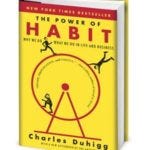Charles Duhigg’s New York Times Podcast: “Change Agent”
The “Change Agent” podcast is a five-episode series by The New York Times. It is hosted by Charles Duhigg, a Pulitzer Prize-winning columnist and author of “The Power of Habit” and “Smarter Faster Better.” It uses real-life problems to try and solve a surprising story. (When we worked on the podcast last year, Duhigg was a senior editor, but since then he is no longer there.)
Keep reading with a 7-day free trial
Subscribe to Dr. Steven Hassan to keep reading this post and get 7 days of free access to the full post archives.






